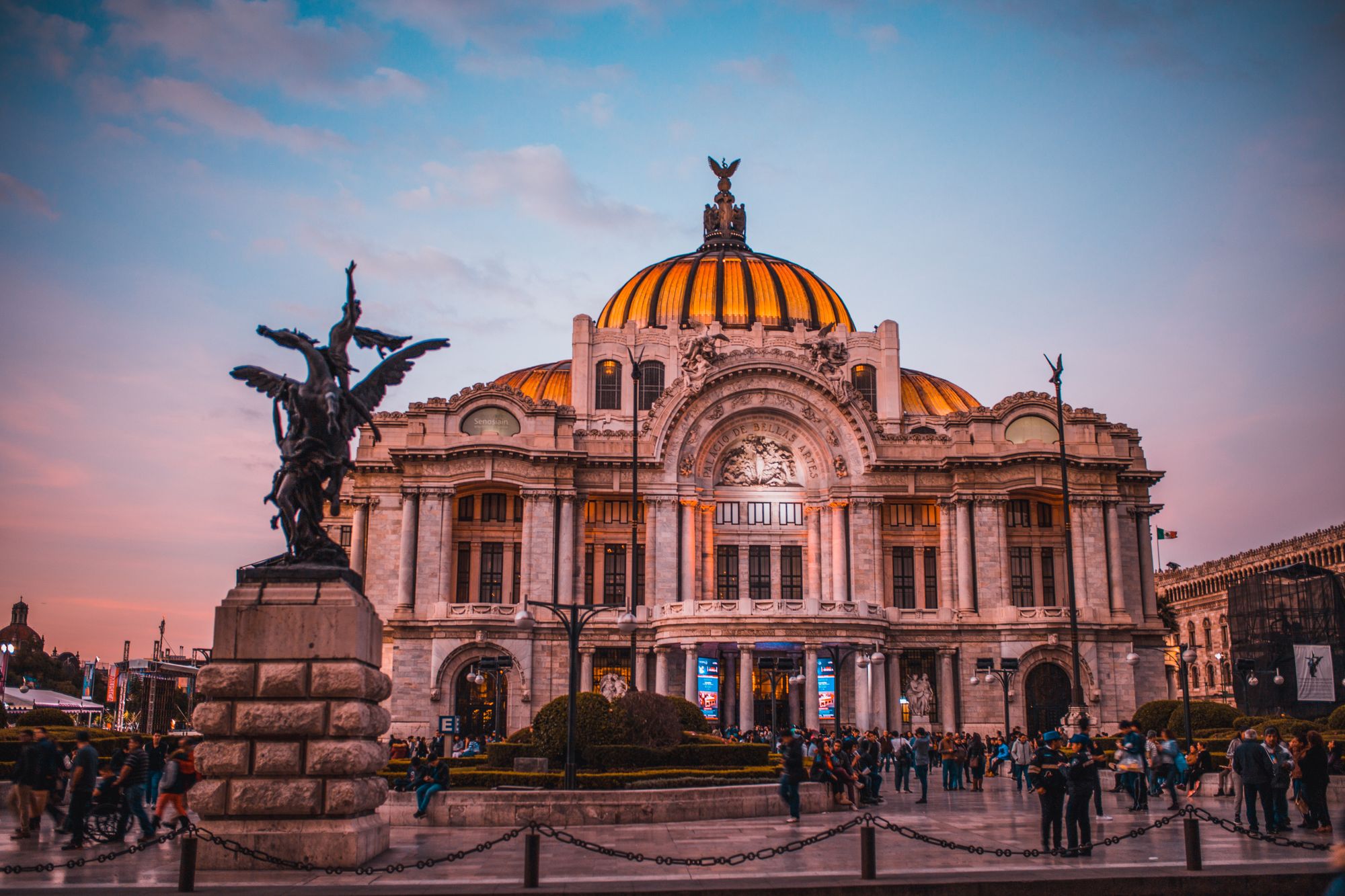Which Version of Spanish Should I Learn?

I want to learn Spanish: which Spanish dialect is better for me?
Well...you have come to the right place!
If proof is needed that Spanish has had a major influence throughout History, consider the 20 countries that keep using the language as their mother tongue today.
Colored with local sayings, indigenous expressions and a myriad of accents, Spanish could actually be seen as composed of several Spanish dialects, as one language finds a new life in every country, capital city and village that still makes use of it today.
You might feel overwhelmed, because as you start listening to different versions of Spanish, you could have two problems:
a) Everything sounds completely similar to you, so you have no idea which one would be the best
b) Everything sounds completely different and unfamiliar to you, so you feel overwhelmed and unsure of the choice you should make
The first thing you should know, and it might sound pretty obvious, is that there is no "best" version of Spanish any more than there is a best version of Portuguese, English, French or Arabic. Of course, there could be a better option for you as an individual with particular goals and a particular geographical location. But no version will inherently have higher quality or be the “purest” or “the most authentic”.
For that reason, this article will not tell you that "one" version of Spanish you should be learning, but rather be a guide for selecting the smartest choice for you.

What changes between different varieties of Spanish?
• Pronunciation. Depending on the Spanish-speaking country, the letter "c" may be pronounced similarly to the English sound "th" (in "things") or a simple "s" (as in "song"). Additionally, the letters "y", "ll", "j" and "s" could sound slightly to very different depending on where you go, not just between countries but regions within the same country. It would be a good idea to explore the different accents of the Spanish-speaking world to begin with. How many can you distinguish? If you have already proven to know a lot with that first clip, try part two of the same series and challenge yourself to understand different Spanish accents!
• Colloquial expressions. Say a very enthusiastic "Purete!" ("Awesome!") in front of a Spanish speaker from Spain, and they will probably feel confused. That is because this expression is used in Paraguay, where a creative blend of Spanish and Guaraní has taken place. The same would be true if you used the expression "hacer al tiro" (to do something "in a gunshot", meaning, in a hurry or quickly), as most would assume you have some kind of relation with Chile, not Mexico or Spain. If you would like to practice your Spanish reading skills, perhaps this article about Latin American expressions Spanish people will have trouble understanding will interest you! Additionally, you can explore different typical Spanish expressions most Latin Americans wouldn't be familiar with.
• Everyday vocabulary and grammar. Be careful - a word you use in Spain might not be the same word you would use in Uruguay, Argentina or Colombia! The very first difference is what is known as "voseo". While in Spain people might address you as tú (you, informal), most Latin Americans would use vos to refer to the same person. This will have an immediate impact on several verb forms and how you would use them. For instance, it is much more likely that someone in Buenos Aires or Asunción would say "Quien sos?" (Who are you?) rather than "Quien eres?", as most would say in Madrid. Additionally, a word as simple as bolígrafo (pen) in Spain could actually be translated to biroma (Argentina), pluma (Mexico) or lapicero (Venezuela). In a nutshell, you will have to pay attention to grammar and vocabulary shifts.
So which Spanish version should I choose?
In order to choose the version of Spanish that best suits your personality and your needs, consider the acronym EUPHO:
E – Ease
U – Usefulness (or Probability of Usefulness)
P – Passion
H – Heritage
O – Originality

Ease
This one is pretty straightforward – you can always decide that the version of Spanish you want to learn is simply the easiest one compared to your native language, as well as other languages you might have learned by now.
Most would claim Latin American versions of Spanish would be slightly easier to pronounce than the European version if you haven’t learned Spanish at all in the past, or if you are not very keen on learning languages in general. That is because sounds that could be considered more challenging in European Spanish, such as the “c” in cero (pronounced "theh-roh") or the “ll” (pronounced somewhat like "ly") sound will be converted to the simple sounds “s” and “y” in Latin America, making it easier to pronounce. However, be careful...the "ll" sound in Argentina would actually sound similar to the sound "sh" in English! Here is the difference between the variants.

Usefulness
If you are planning on working, studying or living in a Spanish-speaking country anytime soon, then it should go without saying that that is definitely the version of Spanish you should be learning.
Additionally, if you have a close friend or family member who is currently living in a Spanish-speaking country, have a Spanish-speaking spouse or child, then this could be your motivation for learning a particular version of Spanish.
Nowadays, another common scenario is that you might live in a country with a massive community of Spanish-speaking immigrants, and would love to be able to engage with or understand that community.
But even if you do not find yourself in any of these situations, you can always go with the version that you believe you are most likely to use in a foreseeable future. Instituto Cervantes released a very useful document in 2016 providing details on the countries with the largest number of native Spanish speakers, as well as other countries with the largest percentage of Spanish speakers where the language is not official.
A good rule of thumb would be to ask yourself the following question: if somebody told you tomorrow that you would have to move to the nearest Spanish-speaking country to your home country, what would that be?
Even if you live in Asia or Africa, try locating the nearest Spanish-speaking country. Maybe that could be your starting point!

Passion
Emotional reasons are just as valid to learn a language as any other motive.
Passion could be interpreted literally – as in, being in love with a native Spanish speaker and wanting to learn his or her language to be able to communicate more effectively or show your affection for their culture.
However, passion goes so much deeper than that if you interpret it in its purest way – the childlike, inner “push” that makes you want to learn something new, exciting and beautiful just for the sake of learning, and not anything else! In that case, it is not surprising that most people would try to learn Spanish because they are fascinated with a particular country and its culture. It could also be that you just love the melody and vibe of the language, and don’t really care about future plans. Maybe you just want to start learning Spanish by yourself!
In this situation, it would be wise to explore different music styles of the Spanish-speaking world, different singers, bands and projects, watch YouTubers of different nationalities and try to understand if your heart and your gut lean towards a particular accent or if it all just sounds the same to you!

Heritage
If your parents, grandparents or distant relatives came from a Spanish-speaking country, you might be interested in discovering more about their language and culture. However, that is not the only way heritage can be significant.
You might be intrigued by history and how your own motherland came to develop, and be surprised to find that one or more Spanish-speaking countries might have had a major influence in the way things turned out.
Of course, that is not at all the case for all countries around the world, but if you do discover that a country like Mexico, Paraguay, Spain, Argentina or Colombia has played an interesting role in the story of your nation’s past, you might find this motivating to learn a particular variant of Spanish.

Originality
If you tend to love learning languages that most people would be completely surprised by, you might want to go with the lesser known, more specific variants of Spanish that people around the world tend to not opt for, either for lack of usefulness in their lives or because they have simply never thought about it.
Learning Spanish from Paraguay, Nicaragua, the territory of Puerto Rico or Uruguay is just as noble as learning Spanish from Spain, Colombia or Mexico – while the number of speakers is relatively smaller, you will still have the pleasure of discovering an awe-inspiring diversity of danceable music genres, entertaining YouTubers, fun colloquial expressions and a cultural heritage to die for!
Go this way if you love impressing people with your knowledge of alternative, original languages that less adventurous language learners wouldn’t dare try!
And the best part?
You do not even have to go with just one of these criteria – the more you cross them and match them, the more specific you will get in your options of Spanish dialects...and the clearer your choice will be!
If you still find yourself struggling, the best option is to go with one of the variants that has the highest number of speakers - such as Mexico, Colombia or Spain, and get a hold of the basics and start getting comfortable with the language. The best part about Spanish is that it doesn’t change that radically across countries, as Arabic does, for instance. You can always change your mind or your plans midway, and then decide to polish your Spanish in a way that it resembles your favorite variant.
Above all, do not be afraid to experiment, explore and discover the profound festival that is the Spanish language. Choices can be made along the way, as well as changes as you tailor the language to suit your needs. Never lose your sense of fiesta!
